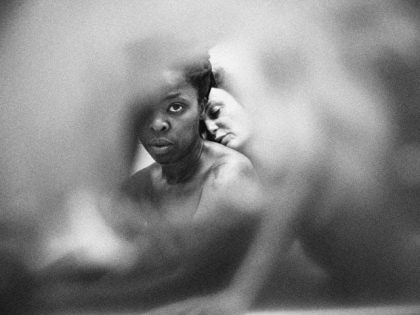
Belonging—Why South Africans Refuse to let Africa in
Most South Africans have at least one thing in common: their hatred of other Africans coming from the rest of the continent.

Most South Africans have at least one thing in common: their hatred of other Africans coming from the rest of the continent.

The Cape Town company that designs and markets "slave ship" ironing boards and aprons.

Chris Hani, a prominent ANC and Communist Party leader, was murdered on April 10, 1993, by white racists. The writer remembers hearing the news.

The writer went for a visit and found Stellenbosch, a Western Cape town that is home to one of South Africa's universities, strange, interesting and also very sad.

On one of the last days of AIAC’s first #WhiteHistoryMonth, I found myself getting increasingly annoyed in the queue to board the last flight from Murtala Mohmammed International Airport, Lagos to Johannesburg. Behind me stood two South Africans, who were giggling and entertaining each other in a way that had they been ten, or in their teens, an accompanying adult would have asked them to take it down a notch.

The brochures about the town left out the reality for Stellenbosch's black residents: poor, nasty, brutish, and short.

From this week’s Washington Post Travel Section–“How unexpected: There was more modernity than I expected, such as extremey modern infrastructure (roads, etc.) in many places, although there is still poverty there. “

Research and investigative journalism have begun to identify the agents of Apartheid South Africa's violent history.

The photographer Zanele Muholi equally mourns and celebrates South African queer lives.

An alternative lens on migration stories that are often ignored in the mainstream media.

South Africa's second largest political party, the Democratic Alliance, exhibits the same paranoia as does the ruling party when it comes to dissent.

When Gullit won the Ballon d’Or in 1987, he dedicated the award to the imprisoned Nelson Mandela; then made a reggae song about Apartheid.

Nicholas Eppel's photographs of a working class woman's home life in central Cape Town doubles as a chronicle of the city's gentrification.
I discovered the three piece Afrikaans outfit Bittereinder through the internet and fell in love with them because of their live performance. Their music, a bass-heavy flurry of high-energy drops and subdued melodies, develops a different personality on stage, often in stark contrast to the studio recordings. Bleeps become filtered echoes; drum patterns change, or disappear completely. Bittereinder is Afrikaans for ‘bitter ender’.

It is important that Dutch slavery history gets anchored in history curriculums the same way that the Second World War (which is incomplete) is.

In May this year, South Africa will host its 5th general election since the advent of democracy in 1994. The ruling African National Congress have dominated these elections until now (62.6% of the vote in 1994, 66.3% in 1999, 69.6% in 2004 and 65% in 2009) and are poised to get a majority again, though […]

Artists in South Africa continue to push the boundaries of gender norms in popular media. In contemporary dance, members of the group V.I.N.T.A.G.E. Cru (who we’ve interviewed) are boldly leading the way (see their latest video) and in music, the young Cape Town-based singer Umlilo is poised to redefine common gender perceptions. Through his makeup, […]

Since she has never really spoken about her feelings on the breakdown of her marriage to Nelson Mandela, except to very close friends, we are obliged to speculate.

William Gumede, who wrote a book about the ANC, makes a strange and careless argument--without recourse to evidence--about the ruling party's fortunes.

Muntu Vilakazi photographs the 'Politics of Bling' on Johannesburg's East Rand.